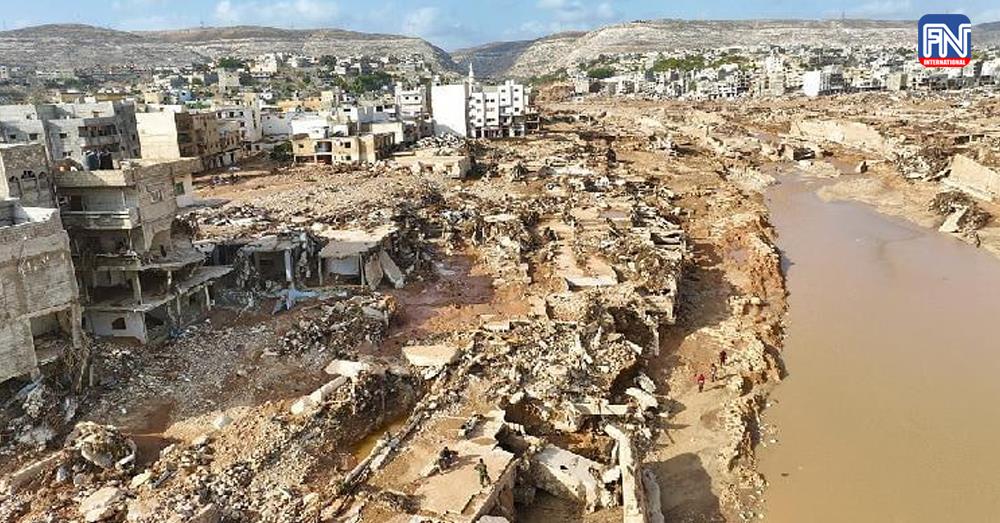DERNA, Sep 15 (Aljazeera) - The death toll in Libya’s coastal city of Derna has soared to 11,300 as search efforts continue following a massive flood fed by the breaching of two dams in heavy rains, the Libyan Red Crescent said.
Marie el-Drese, the International Federation of Red Cross and Red Crescent Societies (IFRC) Libya secretary-general, told The Associated Press news agency another 10,100 people are reported missing in the Mediterranean city. Health authorities previously put the death toll in Derna at 5,500. The storm also killed about 170 people elsewhere in the country.
The mayor of Derna, Abdel-Moneim al-Ghaithi, said the tally could climb to 20,000 given the number of neighbourhoods that were washed out.
The flooding swept away entire families in Derna on Sunday night and exposed vulnerabilities in the oil-rich country that has been mired in conflict since a 2011 uprising that toppled long-ruling dictator Muammar Gaddafi.
“Within seconds the water level suddenly rose,” recounted one injured survivor who said he was swept away with his mother in the late-night ordeal before they both managed to scramble into an empty building downstream.
“The water was rising with us until we got to the fourth floor,” the unidentified man said from his hospital bed, in testimony published by the Benghazi Medical Center.
“We could hear screams. From the window, I saw cars and bodies being carried away by the water. It lasted an hour or an hour and a half – but for us, it felt like a year.”
Tariq al-Kharaz, an interior ministry spokesman, put the number of deaths in Derna far lower at more than 3,000.
“The catastrophe is massive and as a result access to many areas is not possible. Many areas suffered total damage. Many dead bodies are still under the debris, others washed away into the sea,” al-Kharaz told Al Jazeera.
The storm also killed about 170 people in other parts of eastern Libya, including the towns of Bayda, Susa, Um Razaz and Marj, Health Minister Othman Abduljalil said.
Emergency workers sifting through the mud and rubble are still hopeful of finding survivors, IFRC said on Friday.
“The hope is there, is always there, to find people alive,” said Tamer Ramadan, head of the group’s rescue effort in the North African country.
